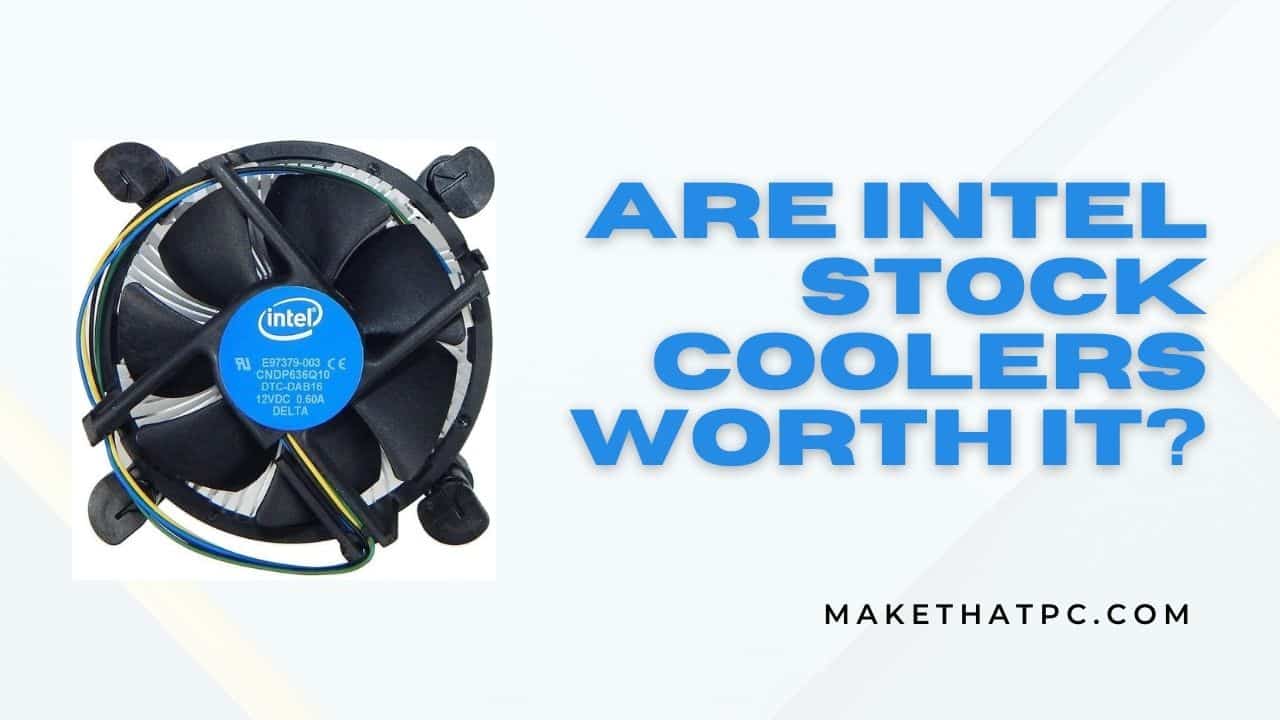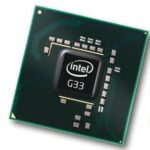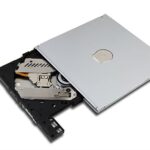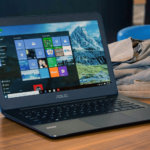If you are buying a non-K, KF, XE, or X series Intel processor, you will find a stock Intel cooler inside the box. You can find the list of all these processors right here. These are non-overclockable processors which tend to create a normal and stable amount of heat. So, Intel would offer you the most suitable stock cooler to manage that heat.
But, you might have heard words from the users that these stock coolers are just bad. Or some people would say that they are great for almost all the normal users.
Now, the overall cooling effectiveness of your stock cooler or, in fact, any cooler will depend on various other external things such as the airflow inside the case. But, I would answer your question in as short a paragraph as possible.
The Intel stock coolers are good enough to manage the heat in weak CPUs. So, if you are using any 7th or 8th generation CPU or below that, a stock cooler should provide enough cooling to it. The only exception here is that you shouldn’t have overclocked your CPU. If you are CPU is not overclocked and you are using it for normal tasks such as text editing, light-gaming, internet surfing, etc, you are good to go with a stock cooler.
Generally, a rule of thumb is to check the TDP of your CPU. Generally, a CPU with a TDP below 90 Watts doesn’t need any after-market or high-end cooling solution. For low-TDP i.e. 30-90, a stock cooler is more than enough.
If your CPU is going to be under a huge load like gaming, or if you are going to overclock it, it will definitely create a lot more heat. In that case, you will need to look for an external cooler with better capabilities.
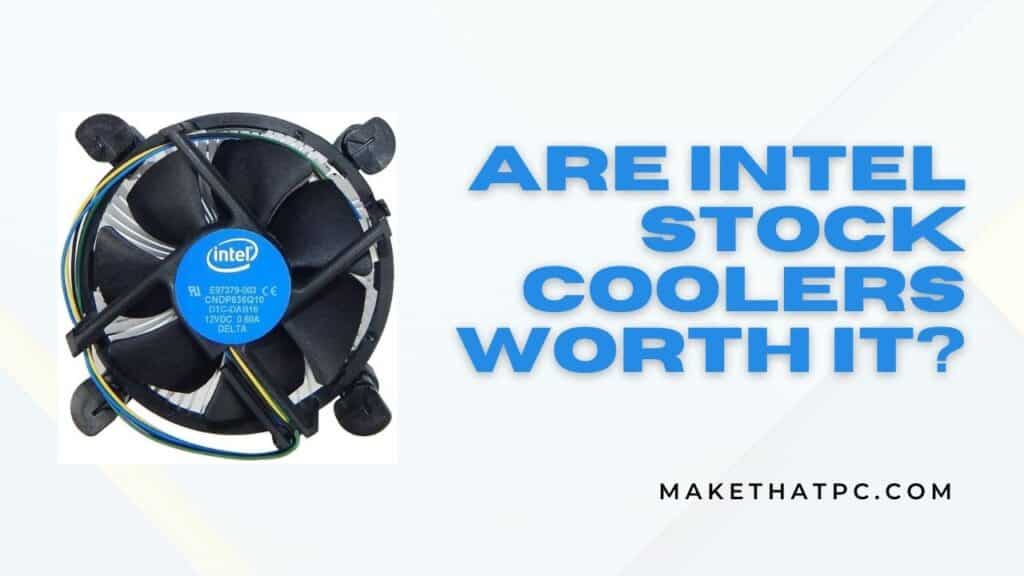
How much cooling can an Intel stock cooler provide?
No matter which processor you are using, if the total load on your CPU is 100% over a long period of time, the stock cooler will be able to keep the temperature near around 80 degrees celsius. Now, this depends on another major factor which is the airflow in your case. If the air is getting through your case in a proper manner, the CPU cooler will also work much more efficiently.
But, generally, a stock cooler is enough to handle your CPU’s highest temperature on maximum load without throttling it. Still, there are various things that may impact it. The room temperature will have a huge impact on this.
Note: We are talking about the Intel CPUs that come delicately with the stock coolers inside the boxes. You can’t expect a stock cooler to cool down an overclocked CPU that would otherwise need a liquid cooling solution.
Please keep in mind that there are two types of Intel stock coolers.
The smaller Intel stock cooler that comes with an 80mm fan (E97379) is the most basic cooler from Intel. You will find this one with the low-end CPUs. It is made for lower temperature and it will does its job only with those less power demanding CPUs.
The second type of Intel stock cooler has a little bigger heatsink while having the same fan type. This one comes with little powerful processors and has better cooling capabilities. This one will surely keep the supported CPUs well around 70 degrees celsius on maximum load without overclocking.
Does Intel’s smallest stock cooler throttle the CPU?
You should check this article on How to Geek where they have compared Intel’s both stock coolers with an aftermarket tower air cooler. They used the Intel i7-7700K processor for this test.
Now, the tests clearly showed that Intel’s basic stock cooler performed terribly. This stock cooler just made the processor hit its throttling temperature within seconds. The larger stock cooler performed a little bit better while the cooler master’s tower air cooler was the best among all of them.
The basic Intel stock cooler took just around 10 seconds to make our processor reach 100 degrees celsius.
So, definitely, Intel’s basic stock cooler will throttle the CPU if you are combining it with a powerful CPU. If it is combined with its own CPU without any tweaks to it, it should work perfectly fine.
What about the noise?
Yes. Intel’s stock coolers make a lot of noise. In fact, when you hit high-temperature limits, you can simply hear the rotating sound as an exhaust fan is running in your kitchen.
This sound will be very frustrating and when the RPM reaches 100%, it may start to interfere with your work. So, if you are looking for a very silent computer, you should never go for the Intel stock coolers.
Also Read: Tower vs Top-Flow CPU Air Coolers
Should I use an Intel stock cooler for my build or not?
Definitely, you should install your stock cooler if you are getting it with your CPU. Most probably, you will not be able to overclock your CPU. So, if you are not going to use your CPU extensively for gaming, heavy video editing, rendering, etc, there is nothing wrong with the stock coolers.
You can still test the temperature by testing the computer on some hard tasks. If the temperature is staying within 70 degrees celsius, there is nothing to be worried about the cooling with your stock cooler. But, if you think that the temperature is exceeding your desired limits or if the cooler is making a lot of noise for you, you should simply upgrade to an aftermarket cooling solution.
How to buy an aftermarket CPU cooler?
Well, there are a lot of buying guides you find online if you want to find a suitable cooler for your Intel processor. However, I would suggest using PCPartPicker and finding the most suitable after-market cooler for your processor there.
Still, if you want to know, you should first check the type of socket your motherboard has for the CPU. So, if your CPU cooler is just made for an AMD socket, you won’t be able to use it easily on an Intel CPU socket.
Then find the cooler or AIO liquid cooler that supports that socket. All other things like sound, cooling, looks, clearance should be considered after checking the socket support.
Thanks for reading!

I am Anshul Rana, an experienced author specializing in PC gear reviews and Windows 10 software tutorials. With a strong passion for technology and an in-depth understanding of the PC industry, I provide insightful and detailed analyses of computer peripherals, gaming gear, and software solutions. My writing style is concise yet informative, making complex topics accessible to both beginners and advanced users. Through my reviews and tutorials, I aim to offer valuable guidance, helping readers make informed decisions to enhance their PC experience and explore the vast possibilities of Windows 10 software.
